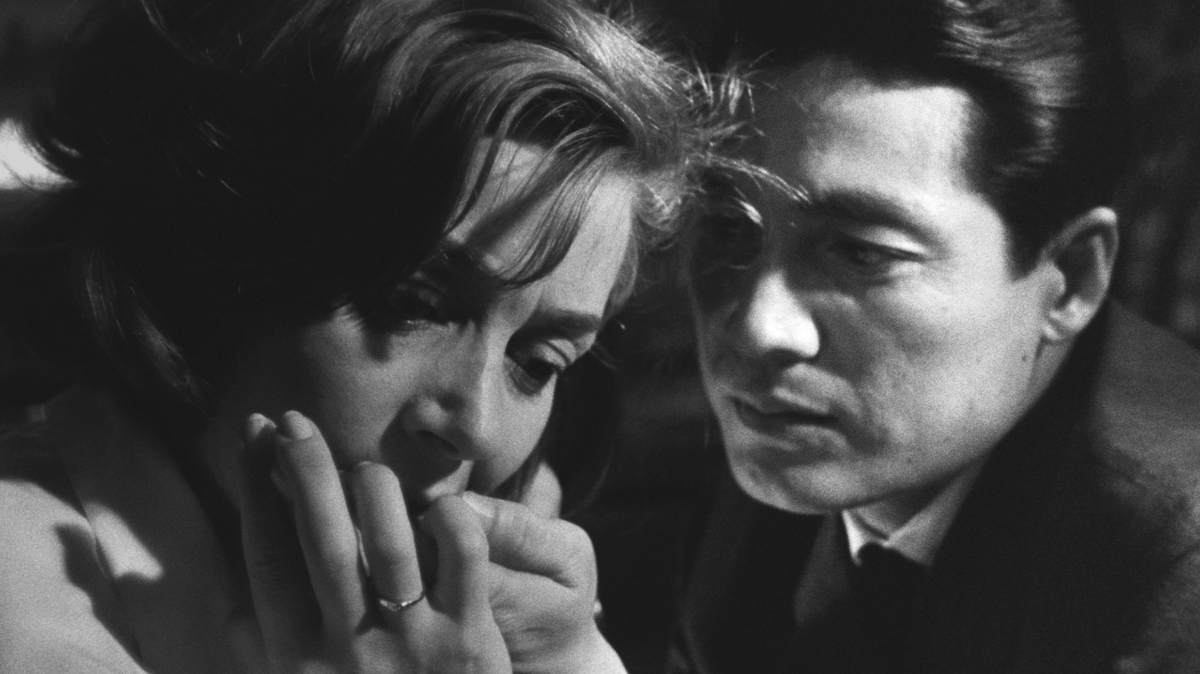In the realm of cinema, few films have captured the profound and complex emotions that arise from being bystanders on opposite sides of a war as eloquently as Alain Resnais’ Hiroshima mon amour (1959). This French New Wave masterpiece delves deep into the human psyche to explore the haunting experiences of two lovers who find themselves caught in the crossfire of World War II, representing the broader implications of the war and the universal struggle with the concept of inherent evil. As the film unfolds, it becomes evident that the opposers on both sides of the war are not simply good and evil, but rather products of a complex and often tragic historical narrative.
A Tale Of Love And Loss
Hiroshima mon amour begins with an affair between a French actress, Elle, and a Japanese architect, Lui, who meet in post-war Hiroshima. Through their passionate yet ephemeral love affair, Resnais explores the overarching theme of memory and loss, both personal and collective. Elle, representing the French perspective, and Lui, representing the Japanese perspective, have each witnessed the horrors of war, and their love serves as a metaphor for the reconciliation and understanding that must emerge from the ashes of conflict.
The Dichotomy Of Opposers
The film’s central theme revolves around the idea of opposers being deemed inherently evil. It questions the simplistic notions of good and evil, challenging the audience to look beyond the surface. On one hand, Elle and Lui belong to nations that were on opposing sides during World War II. This opposition could easily be reduced to a binary understanding of good versus evil. However, Hiroshima mon amour refuses to conform to such simplifications.
Elle and Lui are both victims of the war’s brutality. They are bystanders who have endured immense suffering, and their pain transcends national boundaries. Elle’s memories of a passionate affair with a German soldier during the war reveal the complexities of human relationships during times of conflict. Lui’s memories of his wife’s suffering from radiation sickness in Hiroshima exemplify the tragic consequences of war on innocent civilians. In both cases, the film underscores the idea that individuals should not be judged solely based on their national identity but rather on their humanity.
The Weight Of Collective Guilt
Resnais also addresses the notion of collective guilt, a recurring theme in post-war literature and cinema. The characters of Elle and Lui grapple with guilt in their own ways. Elle carries the guilt of her wartime affair and the death of her lover. Lui, on the other hand, bears the weight of Japan’s wartime atrocities, symbolized by the tragedy of Hiroshima. Their personal burdens reflect the collective guilt of their respective nations.
As Elle and Lui share their stories and innermost thoughts, they begin to heal, not only as individuals but as representatives of their nations. Their love becomes a form of catharsis, allowing them to confront their pasts and come to terms with their own guilt and the guilt of their countries. This transformation highlights the film’s message that healing and reconciliation are possible, even in the aftermath of the most devastating conflicts.
Cinematic Innovation
Hiroshima mon amour is renowned for its innovative cinematic techniques, such as Resnais’ use of nonlinear storytelling and the seamless integration of documentary footage from the aftermath of the Hiroshima bombing. These techniques help to create a sense of disorientation, mirroring the characters’ struggle to reconcile their pasts.
The film’s evocative visuals and haunting score further enhance its emotional impact. The juxtaposition of Elle and Lui’s intimate moments with images of Hiroshima’s devastation serves as a powerful reminder of the human cost of war and the urgency of preventing such tragedies in the future.
Final Words
Hiroshima mon amour is a profound exploration of the underlying sadness that emerges when individuals find themselves as bystanders on opposite sides of a war. It challenges the simplistic notion of inherent evil by presenting characters who are shaped by their experiences and traumas, rather than their national identities. The film emphasizes the importance of empathy, understanding, and reconciliation as essential steps toward healing the wounds of war.
In a world marked by ongoing conflicts and divisions, Hiroshima mon amour serves as a timeless reminder of the human capacity for both destruction and redemption. It encourages us to look beyond the surface and recognize the shared humanity that unites us all, even in the darkest of times. As Elle and Lui’s love story unfolds against the backdrop of Hiroshima’s ruins, we are reminded that love and understanding can transcend the boundaries of nationality and history, offering hope for a more peaceful and compassionate world.













Its wonderful as your other posts : D, regards for putting up. “Say not, ‘I have found the truth,’ but rather, ‘I have found a truth.'” by Kahlil Gibran.
This is a very good tips especially to those new to blogosphere, brief and accurate information… Thanks for sharing this one. A must read article.
Some truly excellent content on this internet site, thanks for contribution.